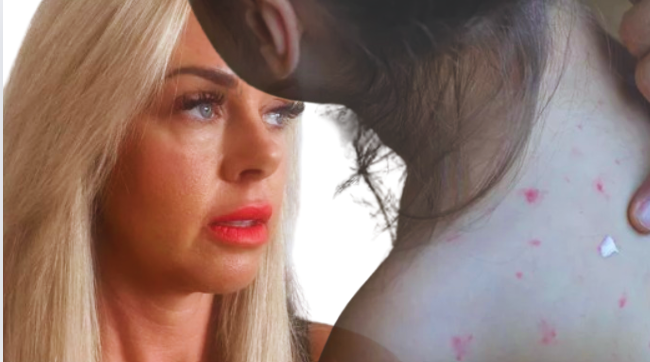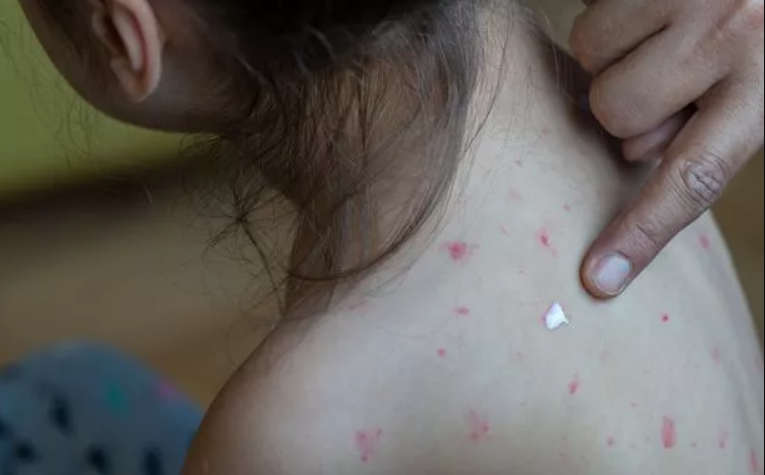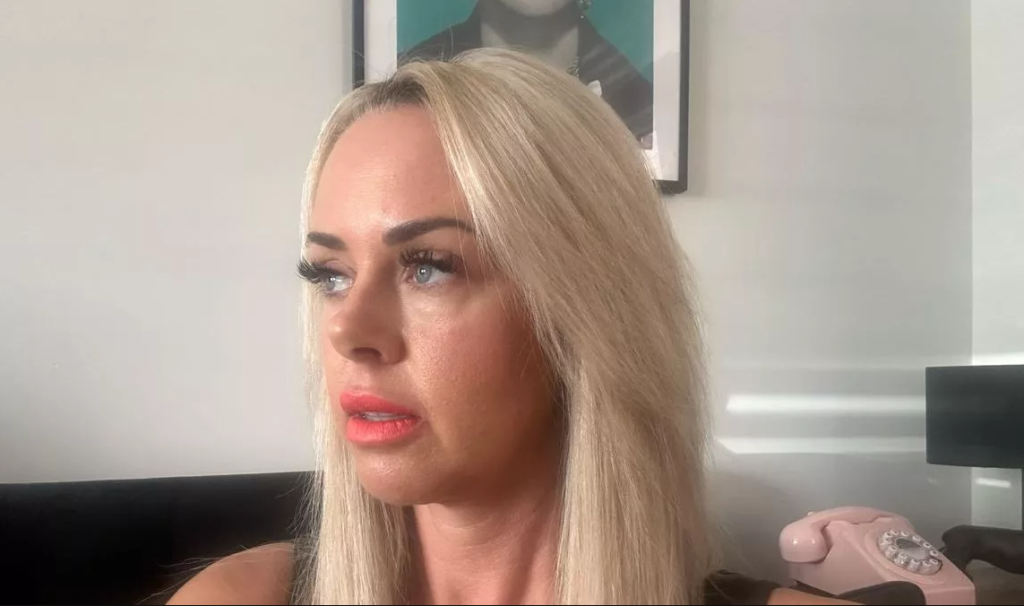
A mother has shared how her daughter’s health worsened, starting with chickenpox and leading to a mysterious condition that “destroyed” her life.
Lucy Wheeler, 44, from Kettering, Northampton, said her life changed dramatically when her daughter Scarlett, now 14, became unable to walk for three months, reverted to behaving like a “baby,” and even grabbed a knife during hallucinations. Scarlett’s behavior swung from being suicidal to trying to harm others.
This drastic change in Scarlett, described as a “happy, bright, and sociable girl,” began after she initially contracted chickenpox at age five and was treated with antibiotics.

Chickenpox was just the start. Scarlett then developed severe pneumonia and began to experience delayed speech, memory problems, and noise sensitivity. “Then came the neurological decline,” Lucy told The Mirror. “She became extremely depressed, complained of a headache, was very confused, and developed a tic in her eyes.”
Lucy worried Scarlett might have a brain tumor due to her “huge emotional outbursts and severe separation anxiety.” But all tests came back normal, leaving Lucy without answers. For years, every time Scarlett caught a minor virus like a cold, she would fall back into the same pattern.
Pediatric Acute-onset Neuropsychiatric Syndrome (PANS) is thought to be an autoimmune disorder where the immune system mistakenly attacks the brain. The condition causes sudden onset of obsessive-compulsive symptoms (OCD) or eating restrictions, along with acute behavioral deterioration. Scarlett’s symptoms matched those of PANS and its related condition, PANDAS, which occurs in response to a strep infection.
According to the charity PANS PANDAS, there is no specific test for the condition, so diagnosis is based on medical history, current symptoms, and a physical examination. Lucy added, “The SENCO of her primary school mentioned PANS, which was fortunate because most people don’t know about it.”
The family finally received a PANS diagnosis after seeking private help, but Lucy said not diagnosing Scarlett sooner caused significant damage. “Because it went untreated from age five to nine-and-a-half, there was a lot of damage done in those early years. So, her education suffered,” Lucy explained.

Treatment involves giving Scarlett antibiotics whenever she has health issues from a virus, but this was complicated as her initial diagnosis was private. Scarlett couldn’t get the necessary antibiotics on the NHS because many doctors didn’t recognize the condition, which remains largely unknown.
Lucy, a former trainee midwife, said, “Every time she got a virus, she would flare. We had to get the diagnosis privately because we couldn’t get it on the NHS.”
However, Lucy found an NHS doctor, Professor Rajat Gupta at Birmingham Children’s Hospital, who could help. “He gave us a strong antibiotic for three days, and she slept overnight and went back to school happy,” Lucy said. Professor Gupta later transferred them to his NHS list, but they still needed private antibiotics, costing them around £30,000.
There is no NHS guidance on diagnosing and treating PANS or PANDAS. Speaking about Scarlett’s development, Lucy said, “If she gets a virus, it’s better now as she’s older, but much of the damage is irreversible. Scarlett can’t settle, sleep, or do basic things like washing her hair. She’s emotionally immature and vulnerable.”
Over the years, Scarlett has become suicidal due to her bleak life. Lucy said, “A lot of times she’s suicidal, and GPs only prescribe Prozac. We take precautions, but I’m not sure she’ll reach adulthood. She has little chance of education, employment, or friendships.”
In January, Scarlett started at the Grange Therapeutic School in Oakham, an hour away from home. It took many tries with their local authority to get her moved from mainstream school. They applied for an education, health, and care (EHC) plan for extra support, which was initially denied but later approved. Lucy added that Scarlett might now have autism and ADHD. “Professor Gupta said it feels like she is autistic and has ADHD. PANS can lead to this if untreated, so it has spiraled. She might never live independently.”
PANS took a toll on Lucy’s mental health. “It completely destroyed my mental health. It was traumatic,” she said.
Lucy hopes sharing their story will help others avoid the same struggles. “If GPs and schools were aware of PANS, it would have been easier. Scarlett could have been treated sooner and wouldn’t have deteriorated so much.” Professor Gupta said PANS is likely “under-recognized, under-diagnosed, and under-treated.” He urged doctors to be open to the condition and explore new treatments.
A spokesperson for PANS PANDAS UK said: “PANS and PANDAS are post-infectious neuropsychiatric disorders. They develop suddenly after common infections like Strep A, Covid-19, and Chickenpox, when the immune response affects the brain. Low awareness among doctors means diagnosis and healthcare access are challenging. PANS PANDAS UK is working with NHS England and medical professionals to improve care.”
Professor Gupta encourages a national consensus on PANS/PANDAS diagnosis and treatment to improve understanding and timely treatment. “Children will then be diagnosed and treated sooner, and their parents will feel heard. We need a multidisciplinary approach involving medical specialists, education, and families,” he said.




